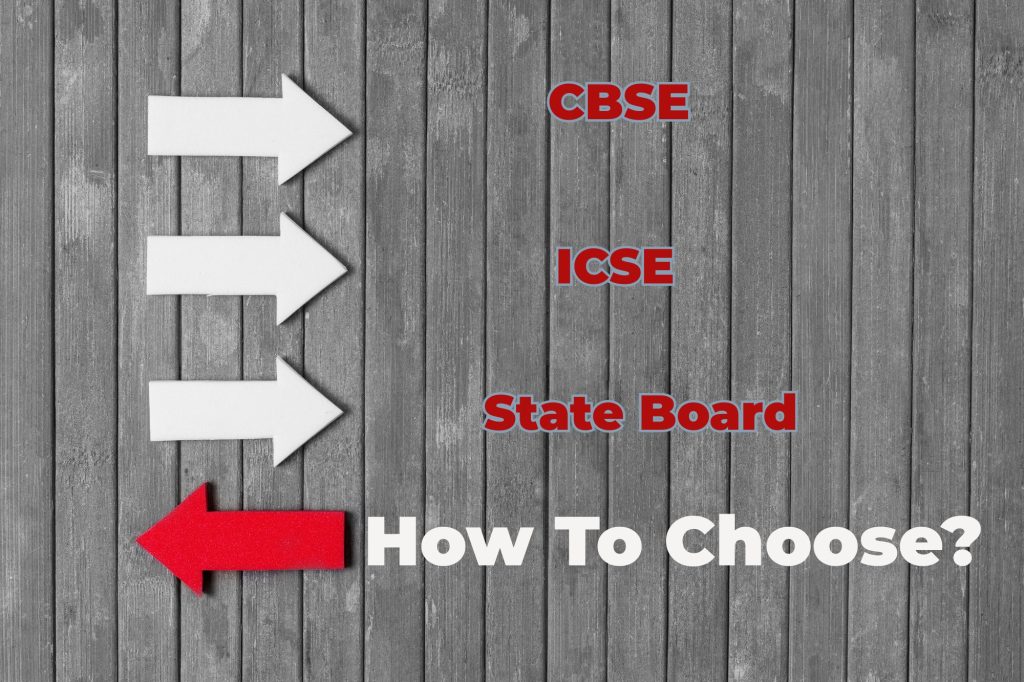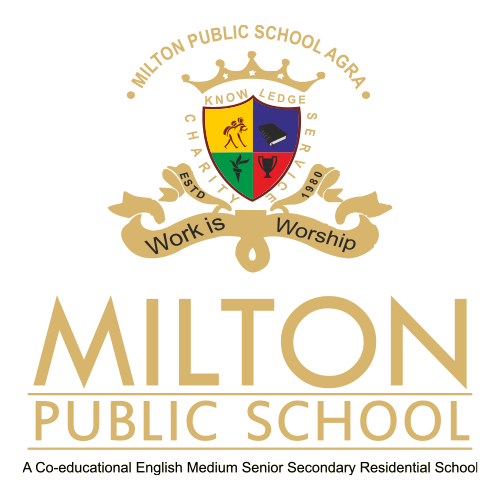
Image by Freepik
Are you confused about how to choose the best education board for your child? The concern is a significant decision that can shape their academic journey and future prospects of your ward. With various options available in India, such as CBSE (Central Board of Secondary Education), ICSE (Indian Certificate of Secondary Education), and state boards, it’s natural to feel a bit overwhelmed. So, CBSE, ICSE, or State Board – Which is the best? How to decide?
At Milton Public School in Agra, we understand the importance of this decision, and we’re here to guide you through choosing the best education board for your child’s needs.
Understanding the Differences: CBSE, ICSE, and State Board
Each education board in India has its own set of strengths and characteristics that shape your child’s learning experience. Thus, to choose the best education board is a mind-boggling question. To simplify it, let’s delve into the differences between CBSE, ICSE, and state board education:
CBSE (Central Board of Secondary Education):
CBSE is the most popular educational board in India. It is recognized by colleges and universities across the country and is chosen by a significant number of schools for its structured approach to education.
- Known for its structured curriculum that focuses on core subjects.
- Emphasizes application-based learning and problem-solving skills.
- Common national syllabus, facilitating ease of movement between schools. For those who have transferrable jobs, CBSE delivers the best option.
- Board exams typically follow a format that encourages analytical thinking.
- Know More about the CBSE Board: Visit the Website
ICSE (Indian Certificate of Secondary Education):
ICSE is another nationally recognized board, however, with a slightly different curriculum structure. It’s known for its comprehensive syllabus that focuses on in-depth understanding and English as the medium of instruction.
- Offers a comprehensive and broader curriculum that includes a wide range of subjects.
- Mainly focuses on in-depth understanding and critical thinking.
- Emphasizes project-based learning, and practical knowledge.
- Assessments include both internal evaluations and external board exams.
- Know More about the ICSE Board: Visit the Website
State Boards:
State boards differ from state to state, which means the curriculum can vary significantly. These boards are generally more focused on regional languages and cultures. They often conduct their own state-level exams.
- Curriculum varies from state to state, allowing for regional customization.
- Exams are conducted at the state level and may have differing formats.
- May include state-specific language and culture in the curriculum.
- Can provide a strong connection to the local culture and community.
Factors to consider:
- Curriculum: CBSE follows a more structured and uniform curriculum, while ICSE offers a broader syllabus with in-depth understanding. State boards may vary widely in their curricular offerings.
- Assessment Methods: CBSE generally follows a pattern of continuous evaluation and standardized exams. ICSE involves more project-based assessments and internal assessments. State boards have varying assessment methods.
- Future Aspirations: Consider your child’s future goals. Some competitive exams might align better with CBSE’s syllabus, while ICSE’s approach can enhance critical thinking.
- Extracurricular Activities: ICSE places emphasis on extracurricular activities, promoting well-rounded development. CBSE also values co-curriculars, while state boards may differ in their approach.
- Geographical Mobility: If your job requires frequent relocation, CBSE’s consistency across regions might be advantageous.
- Learning Style: Consider your child’s learning style—whether they thrive in a structured environment (CBSE), prefer a flexible approach (ICSE), or resonate with a more localized context (State Board).
Choose the Right Education Board: Steps to Follow
The decision should align with your child’s needs, goals, and learning style. Here are some steps to help you decide:
- Research: Gather information about each board’s curriculum, assessment methods, and philosophy. Understand how they align with your child’s learning preferences.
- Consider Your Child’s Learning Style: Does your child thrive in a structured environment? or, do they prefer a more comprehensive understanding of subjects?
- Assess Your Child: Consider your child’s strengths, weaknesses, interests, and learning style. Some children might excel in a particular board’s approach.
- Future Goals: If your child has specific career aspirations, research which board’s syllabus aligns better with the entrance exams of those fields. Research the specific requirements of the colleges or careers your child aspires to pursue.
- Location Matters: If you anticipate moving to another state, national boards like CBSE might be more advantageous. On the other hand, if you’re planning to settle in a particular state, the state board might offer a smoother transition for your child.
- Consult with the School, Educators: Consult teachers or educators for insights on how each board prepares students for higher education and beyond. Milton Public School in Agra, affiliated with CBSE, can provide valuable insights into how their curriculum aligns with your child’s needs.
- Speak with Other Parents and Alumni: Gather opinions and experiences from parents and students who have gone through the boards you’re considering.
- Visit Schools: If possible, visit schools following different boards to get a sense of the classroom environment and teaching methods
- Consider Extracurricular Activities: Evaluate the school’s extracurricular offerings, as they play a vital role in a child’s holistic development.
Key Takeaways:
Ultimately, there’s no “one-size-fits-all” answer to the question of which education board is best. The decision depends on your child’s unique qualities and aspirations.
At Milton Public School in Agra, we understand the significance of this choice and are here to support you in making an informed decision. Our CBSE curriculum is designed to provide a balanced education that promotes critical thinking, creativity, and holistic development. We believe in nurturing students to become well-rounded individuals who can excel in various fields. Remember, the key is to choose the board that aligns with your child’s learning journey and empowers them for a successful future.
Want a piece of advice? Contact Us now
